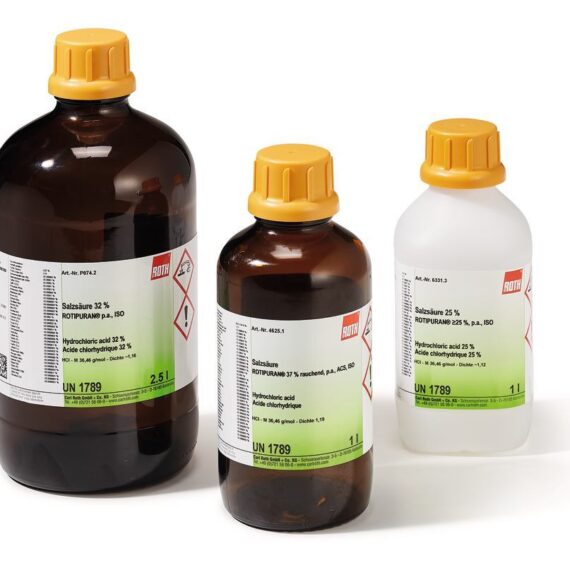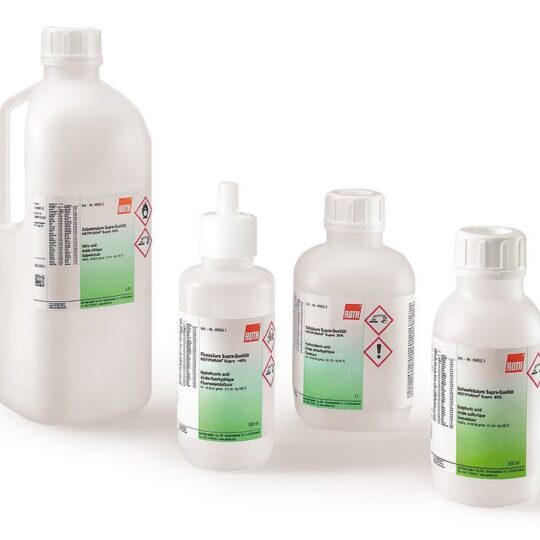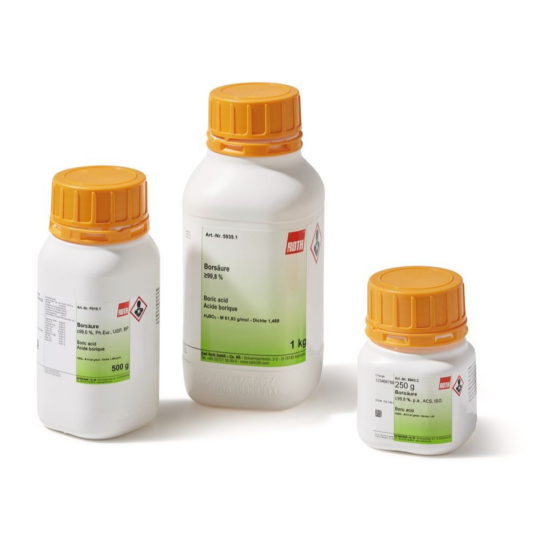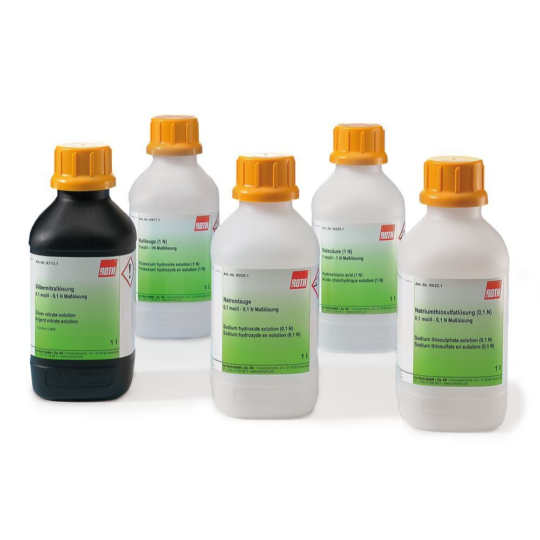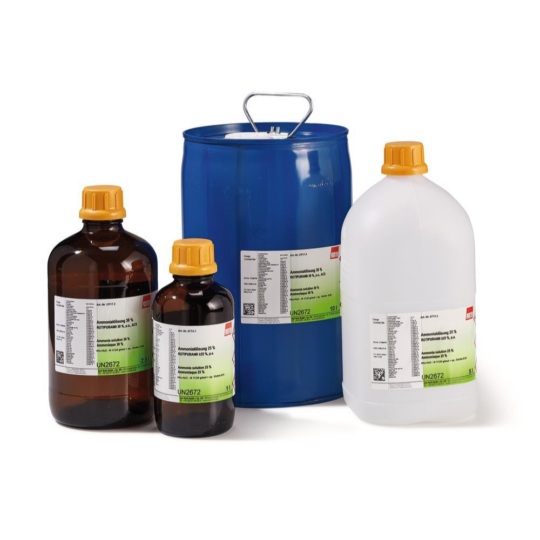Sold out
Hydrochloric acid, glass ROTIPURAN® 37 % fuming, p.a., ACS, ISO
Hydrochloric acid
HCl, Hydrogen chloride
Empirical formula HCl
Molar mass (M) 36,46 g/mol
Density (D) 1,19 g/cm³
Melting point (mp) -30 °C
ADR 8 II
WGK 1
CAS No. 7647-01-0
EG-Nr. 231-595-7
UN-Nr. 1789
Solvent and dissolving agent. For acidifying, neutralisation and regeneration of ion exchangers.
 |
Examples of effect: Damage metals and burn body tissues; may cause serious eye damage. Safety: Avoid contact; wear safety spectacles and gloves. In the event of contact with eyes and skin, rinse with water. |
 |
Examples of effect: Lead to damage to heath, cause irritation to eyes, skin or respiratory organs. Are fatal in larger quantities. Safety: As previously stated, in the event of skin irritation or contact with eyes, rinse with water or a suitable medium. |
| H290-H314-H335 | may be corrosive to metals, causes severe skin burns and eye damage, may cause respiratory irritation |
| P280 P303+P361+P353 P304+P340 P305+P351+P338 P310 | wear protective gloves/protective clothing/eye protection/face protection, IF ON SKIN (or hair): Take off immediately all contaminated clothing. Rinse skin with water [or shower], IF INHALED: Remove person to fresh air and keep comfortable for breathing, IF IN EYES: Rinse cautiously with water for several minutes. Remove contact lenses, if present and easy to do. Continue rinsing, immediately call a POISON CENTER/doctor. |
Description
Hydrochloric acid
Selivanov’s test:
Selivanov’s test involves acidifying a sugar solution with concentrated hydrochloric acid, adding an ethanolic resorcinol solution and heating. Ketoses react quickly to form a red-coloured dye, while aldoses do not react at all, or only react slowly.
Acids and Bases for Analysis (p.a.)
Carl ROTH provides suitable acids and bases for different requirements!
- High purity
- High batch consistency
- Detailed specifications
- Good price-performance ratio

